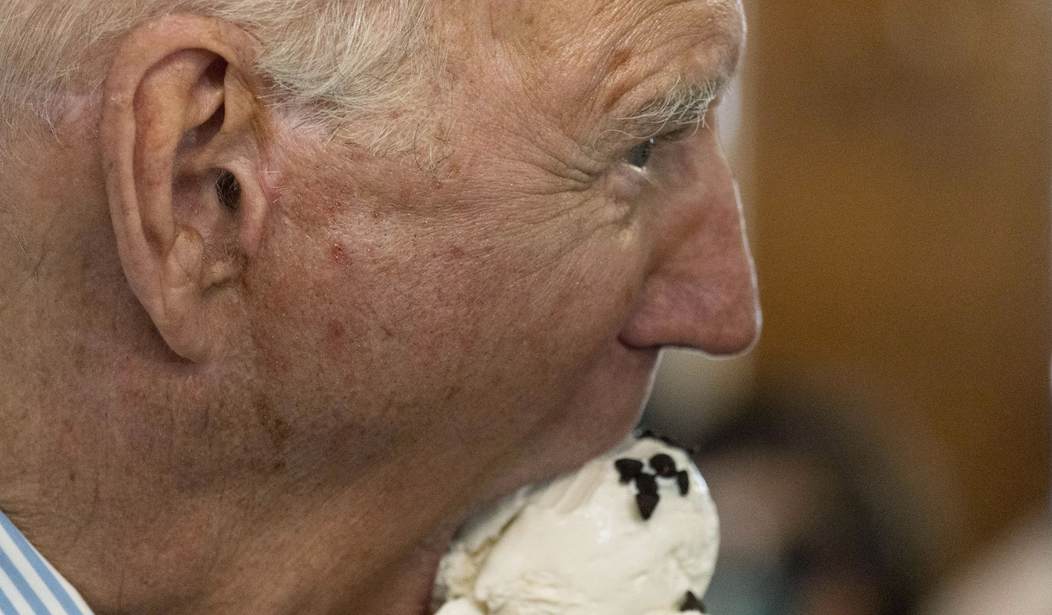On Wednesday, Senators Kyrsten Sinema (D-AZ) and Joe Manchin (I-WV) thwarted President Joe Biden’s nominee for the National Labor Relations Board (NLRB), Lauren McFerran. Biden re-nominated McFerran to another five-year term, but his pick was blocked in a 49-50 vote.
This move has been speculated to be payback, at least in part, for Senate Majority Leader Chuck Schumer's (D-NY) treatment of the moderate senators, as my RedState colleague Bonchie wrote:
Someone should teach Chuck about sowing and reaping. He and his party members trashed Sinema and Manchin, with the former having to endure a Democratic Party-backed primary challenge that ultimately drove her to not seek re-election. Both were stalked and harassed for years, with left-wing protesters even following Sinema into the bathroom. Why? Because they had the audacity to not blow up an important Senate institution to allow a Democrat free-for-all, including the changing of voting laws to try to ensure a permanent majority.
Well, payback is rarely kind, and Sinema and Manchin just delivered a well-deserved helping of it.
Read More:
Kyrsten Sinema and Joe Manchin Leave Joe Biden One Last Parting Gift, and Democrats Are Livid
However, the payback may be more poetic justice than it seems at first blush when you reflect back on Biden’s early days in office. On Inauguration Day, January 20, 2021, Biden's administration sought to push NLRB General Counsel Peter Robb to resign voluntarily. The White House informed Robb of his dismissal through a letter sent just minutes after President Biden was sworn in, informing him that he had until 5 p.m. that day to voluntarily resign or face termination.
In response, Robb refused to step down, stating in his letter that the request was "unprecedented since the inception of the National Labor Relations Act" and that his termination "would set an unfortunate precedent" that would “permanently undermine” the agency's independent work.
However, the Biden administration did not stop there; it also swiftly removed Alice B. Stock, who had previously served as the NLRB’s deputy general counsel under Robb. Stock became acting general counsel with Robb's ouster, and by the close of business on Biden's second day in office, Stock was sacked, too.
As the saying goes: The devil is in the details.
Robb had been appointed by former President Donald Trump and confirmed by the Senate in 2017 to serve a four-year term, which was set to expire in November 2021, 10 months after his removal. After a winding legal challenge through the circuit courts, to the Supreme Court, and back down again, Robb's termination was upheld this year.
However, Robb was correct in declaring that the act was unprecedented. While President Harry Truman asked Robert Denham to resign in 1950, this was the only other instance where a president had directly intervened to remove an NLRB general counsel before their term ended. Truman's request was complied with by Denham, making Biden's action against Robb the first time a general counsel was forcibly removed without resignation.
Read More:
Schumer Forces a Vote to 'Trump-Proof' the NLRB by Reconfirming the Pro-Union Chairman
Schumer Shafted: Plot to Cement Democrat Control at the NLRB Thwarted, Making Way for Trump's Picks
By blocking McFerran's nomination, Sinema and Manchin have effectively returned the favor. Biden's administration aggressively maneuvered to change the direction of the NLRB by removing Robb and Stock, signaling intent to sway the board's balance. Now, with McFerran's nomination blocked, the incoming Trump administration will have the opportunity to appoint members who could steer the NLRB back towards a more business-friendly approach, much as Biden did for big labor.
The pendulum indeed swings both ways: This swing potentially undoing what Biden sought to achieve through his unprecedented, questionable, and politically influenced day-one firing of Peter Robb.













